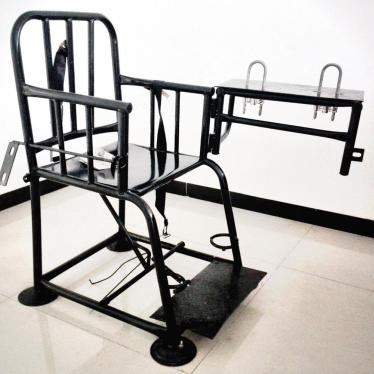Abu Dhabi is the host today for the inaugural gathering of Friends of Yemen, a group established in January at an international meeting of concerned states in London. This members, consisting of Gulf and key Western states in addition to representatives of intergovernmental institutions,need to address Yemen's human rights problems honestly if they want to assist its people and address the threats emanating from that troubled Arabian country.
Yemen's prime minister, Ali Mujawar, on March 21 described his country's expectations from this meeting in purely economic terms. He hopes for "an international fund for development in Yemen" to tackle "poverty and unemployment in addition to ... electricity, road, health, water and education." Mujawar also wants to increase Yemeni labor in the Gulf markets.
The London meeting designated "economy and governance" as one priority for Friends of Yemen, but that alone will accomplish little unless the group also addresses the second priority, "justice and rule of law." If Yemen's friends don't tie economic assistance to improvements in the country's rapidly deteriorating human rights conditions, they will have let the Yemeni people down.
Under international scrutiny, President Ali Abdullah Saleh in February agreed on a truce with the northern Huthi rebels, ending the sixth round of fighting there in five years. He has also offered to hold talks with southern protesters, and to pursue Al Qaeda in the Arabian Peninsula more vigorously. These actions seem to have bought silence from Yemen's donors and allies even though serious human rights violations have escalated.
Yemen's government has shown its intolerance for criticism with heavy-handed repression of the media after they criticized the government's conduct of the war against the Huthis and its handling of southern protests. Last May, and again in January, government troops in Aden fired on the headquarters of Yemen's largest-circulation and oldest independent newspaper, al-Ayyam, and arrested the editor, Hisham Bashraheel. In September, security forces brazenly abducted Muhammad al-Maqalih, online editor for the Socialist Party organ, and denied for months that they were holding him. He is now charged with "undermining the unity" of Yemen. In mid-March, government agents confiscated Al jazeera and al-Arabiyya satellite channels' broadcasting equipment. US Secretary of State Hillary Clinton and UK Foreign Minister David Miliband praised the Yemeni delegation at the January meeting for honestly broaching the country's challenges. The steady repression of dissent tells a different tale.
To prevent future abuses, there is a serious need to investigate human rights abuses in Yemen and hold those responsible to account. Next week, in a new report, Human Rights Watch will detail alleged violations of the laws of war by both Huthi and government forces during their latest fighting in Sa'da.
Each of the five previous truces since 2004 has broken down, afflicting civilians with further harm. Now is the time to lay the foundations for a lasting peace. Respect for the laws of war depends on prosecuting those responsible for serious violations, and ensuring justice and compensation for civilian victims. The Friends of Yemen should urge both the government and the rebels to investigate allegations of unlawful attacks that harmed civilians.
The Friends should also push the UN to establish a human rights monitoring and reporting mission in Yemen. The use of such missions in other conflicts has shown that these missions can act as a protective presence for civilians.
An independent UN mission would also help to constrain growing violence surrounding pro-secession protests in southern Yemen. Government forces over the past three years have used unnecessary and sometimes lethal force to quell peaceful demonstrations. No one has been held accountable for the close-range shooting of at least a dozen peaceful protesters. This excessive use of force has fueled protests, which sometimes turned violent.
President Saleh's offer of talks about southern grievances is welcome; but he has failed to follow through on similar earlier offers. Resolving differences through talks is desirable, but should not substitute for providing for a safe space for southerners to air grievances, and holding security forces and protesters alike accountable when they use unlawful violence. An independent UN monitoring and reporting mission, and an independent Yemeni judiciary, could help provide this safe space, which in turn will keep the doors to dialogue open.
Respect for human rights is also essential in the struggle against terrorism. Since the 2000 bombing of the USS Cole, and the attacks of September 11, 2001, Yemeni security forces have arrested hundreds of suspects, without regard to due process protections in Yemen's criminal procedure laws. Scores remain "disappeared" for months. Many have complained of torture after their release. Recently, US-assisted aerial attacks on suspected terrorists in Abyan and Shabwa provinces in December killed at least 42 civilians, as the government now acknowledges. When civilian lives are lost in such attacks, the US and its allies risk alienating local populations and making victories in counterterrorism ephemeral.
If the Friends of Yemen want a stable and united Yemen, they need to do more than offer economic aid. They need to underline that respect for human rights is critical to maintaining peace in Sa'da, resolving southern grievances without further bloodshed, and confronting terrorism effectively. Yemen's friends have the financial and diplomatic tools to do this. They should be honest with their Yemeni counterparts that they will not stand by San'a unless it ends these abuses.
..
Christoph Wilcke is a senior Middle East and North Africa researcher for Human Rights Watch.







